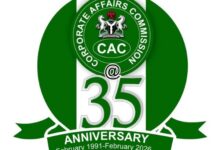ECA seeks financial support for 22 landlocked developing countries
 The Economic Commission for Africa (ECA) said 22 Landlocked Developing Countries, currently experiencing economic and infrastructural challenges, need increased technical and financial support to achieve sustainable development.
The Economic Commission for Africa (ECA) said 22 Landlocked Developing Countries, currently experiencing economic and infrastructural challenges, need increased technical and financial support to achieve sustainable development.
The Acting Executive Secretary of ECA, Antonio Pedro, said this in a statement.
Pedro made the call during a High-level Africa regional review meeting of the Vienna Programme of Action (VPoA) for Landlocked Developing Countries (LLDCs) in Botswana’s Capital, Gaborone.
He said: ” While African LLDCs have made some notable development progress, these have not been substantial enough to reach the goals and targets set out in the VPoA.
”Nonetheless, the limited progress made does not mean achievements should go unnoticed.
”For example, LLDs have improved access to electricity from 24 to 37 percent between 2014 and 2020, and economic growth is forecasted at 5.3 percent for 2023.
”Furthermore, work is underway to further unlock progress, including the African Continental Free Trade Area (AfCFTA)”.
According to Pedro, the successful implementation of the AfCFTA will enhance regional cooperation and economic integration on the continent.
He said it would directly address some of the challenges that LLDCs faced over the years, particularly regarding the reduction of transit costs.
Pedro said: ”Peculiar challenges arising from their lack of access to the sea, as well as inadequate transport infrastructure, are some of the challenges faced by LLDCs.
“We will have to continue our critical work addressing the unique challenges facing LLDCs, and we must do so together.
”The challenges of a majority of African LLDCs are compounded by a recurrent incidence of conflicts, political instability and un-receding high levels of poverty and inequality.
”Africa is home to 16 of the world’s 32 landlocked developing countries, 13 of which are also Least Developed Countries (LDCs).”
The High Representative and Under-Secretary-General LDCs, LLDSs and Landlocked Developing Countries and Small Island Developing States, Fatima Rabab, said the UNs General Assembly had adopted an ambitious call for action.
She said the call was to accelerate the implementation of the Vienna Programme of Action to help LLDCs effectively implement the VPOA and achieve sustainable development.
“Clearly, the targets and aspirations of the VPOA, the 2030 Agenda and Agenda 2063 are far off-track.
“We must double-pace our efforts to turn things around. The 3rd LLDCs Conference provides us with an opportunity to do that.
“Africa must leverage the once-in-a-decade opportunity of the 3rd LLDC conference to mobilise global support to strengthen partnerships to transform the lives and livelihoods of 533 million people in 32 landlocked countries,” Rabab said.
Similarly, Botswana’s Assistant Minister of Agriculture, Molebatsi Molebatsi, said LLDCs should not be left behind in sustainable development.
Molebatsi, however, said LLDCs need financing for better connectivity to implement the Vienna Programme of Action and to meet the Sustainable Development Goals.
“There is a need to work together to ensure the overcoming of the common challenges we have.
”The use of the latest technologies will go a long way in helping us achieve this objective,” Molebatsi said.
BRANDPOWER reports that the regional-level meeting precedes the Third United Nations Conference on Landlocked Developing Countries (LLDCs).
The conference is slated for 2024 and will comprehensively review the implementation of the Vienna Programme of Action for LLDCs.











